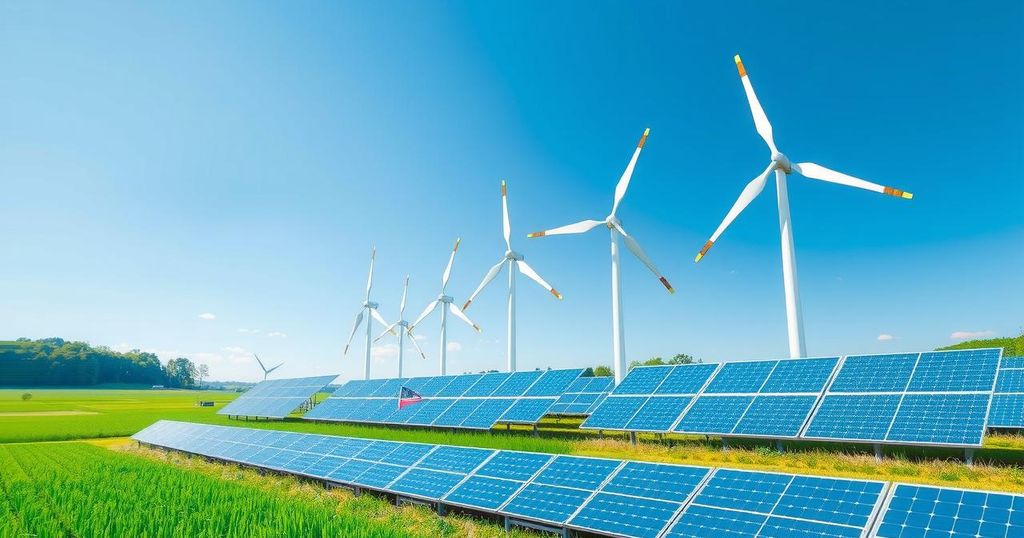Simon Stiell, UN Climate Change Executive Secretary, emphasized the importance of climate action in unlocking Nigeria’s growth potential. Stiell spoke of Nigeria’s ambitious poverty reduction and growth goals, highlighting the need for financial support in executing a robust national climate plan. He recognized the country’s resources, including its extensive mangrove forests, as crucial for sustainable development. He called for widespread participation in climate initiatives and a commitment to climate resilience.
On March 6, 2025, Simon Stiell, the UN Climate Change Executive Secretary, expressed gratitude to Dr. Nkiruka Maduekwe for the opportunity to speak at the Intersecting Worlds of Climate Change, Mangrove and Art Symposium in Nigeria. During his address, he highlighted Nigeria’s vibrant energy and the government’s ambitious goal of lifting 100 million people out of poverty while implementing a 7% growth rate target, emphasizing the need for climate action as a significant driver for these goals.
Stiell noted that Nigeria is facing pressing challenges, including electricity access for over 85 million citizens. He discussed the vast potential of Nigeria as Africa’s largest economy, acknowledging its unique resources, including abundant solar and wind energy, and critical minerals. He asserted that the dynamism and entrepreneurial spirit of the Nigerian people position the nation to capitalize on a global $2 trillion clean energy boom.
A robust national climate plan, or Nationally Determined Contribution (NDC), is crucial for stimulating Nigeria’s economy through green growth and sustainable development. Investment in clean energy, green buildings, and sustainable agriculture is essential for enhancing the livelihoods of the 70% of Nigerians involved in the agricultural sector, while clean cooking initiatives would significantly improve family health.
Stiell underscored that achieving these initiatives requires financial support, emphasizing the need for easier access to international climate funds for Nigeria and other developing nations. He praised Brazil’s COP30 presidency for its focus on mobilizing global climate finance and noted the broader economic impact of green growth on the employment landscape, given that 90% of Nigerians work in micro, small, and medium enterprises.
He cautioned that the risks of climate inaction are already present, with climate-related challenges reducing GDP significantly through events like floods and droughts. Thus, investing in climate adaptation measures is paramount for Nigeria’s economic resilience. Stiell highlighted Nigeria’s extensive mangrove forests, which serve as critical carbon sinks and protect against erosion and destructive storms, further demonstrating the need for sustainable environmental management.
In conclusion, Simon Stiell urged collaboration across Nigerian society to implement effective climate plans, reinforcing the UN’s commitment to support nations in realizing the benefits of impactful climate action. Moving forward, the collective efforts will be essential for ensuring the well-being of the Nigerian populace and harnessing bold climate strategies to foster sustainable growth.
In summary, Simon Stiell’s address highlights the urgent need for climate action as a catalyst for Nigeria’s socio-economic growth. The significant potential in clean energy, sustainable agriculture, and national climate plans must be harnessed with adequate international financial support. Collective efforts and community involvement are necessary to implement effective strategies that will address climate risks while fostering long-term resilience and prosperity in Nigeria.
Original Source: www.miragenews.com






